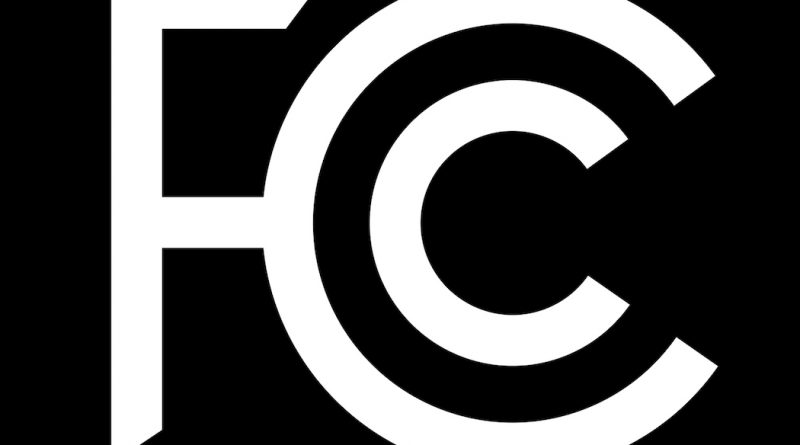The Future of the Internet: The Election’s Most Important Least Talked Issue
By: Hayley J. Clark – Online Editor-in-Chief
Much of the public discourse in the last year, for good reason, has revolved around the presidential election. A few policies have been discussed topically in the news and on the campaign trail: trade, tax, immigration, ISIS. That, unfortunately for wonks, is an approximately exhaustive list.
The election has eclipsed dialogue on pivotal issues that have not gone away, but lay latent just underneath the coverage of The Greatest Show on Earth: the 2016 Presidential Election.
Among the forgotten is net-neutrality and a broader discussion around the future of the internet.
The future of this issue, like many, hangs on the outcome of this election. Though rarely present in the talking points of presidential hopefuls, experts in the field predict that if a conservative is appointed to helm the Federal Communications Commission (FCC) that the future of net-neutrality is at much higher risk.
The last time it cropped up in the news cycle, for but a minute, was mid-June 2016. For those who understandably need a refresher: net-neutrality is the idea that internet should be free of “fast-lanes.” Meaning, it is currently illegal for communication companies and governments (think internet providers like Comcast, AT&T, and Verizon) cannot provide discriminatory prices.
Take this hypothetical scenario: Netflix is not allowed to pay more than Hulu to give faster consumer access.
Proponents of net-neutrality fight advocate for this “design paradigm,” because the internet, in it’s current form, is almost perfectly democratic. A medium ideal for permission-less innovation, brimming with economic opportunity, for millennials in particular. It allows the type of game-changing industry disruption we’ve seen evidenced in the last decade. Many have provided many young people steady, high-paying jobs, and, in some cases, fortunes (see: Silicon Valley man-child boss trope).
Before his powerful speaker series lecture, Dr. Lawrence Lessig gave me a “classic” example of a company who has benefitted from this model:
“If YouTube had to ask the owners of cable networks and ask them ‘Can we build a brand-new network for providing video for free on your wires?’ they would have obviously said, ‘No you can’t do that’.”
It is clear to all of us, as YouTube now stands 11 years old, that it was not shut down before inception — no doubt in great thanks to a neutral network that innovators still enjoy today.
However, the right to neutrality is consistently under fire. The issue resurfaced in mid-June with decision from a federal appellate court granting that gives the Federal Communications Commission to enforce net-neutrality. The issue is expected to eventually rise to the supreme court, as AT&T is looking to appeal the decision.
Democrats and republicans, to the surprise of exactly no one, are largely split along party lines in regard to this issue. H.R. 2666 the No Rate Regulation of Broadband Internet Access Act passed the house this April with 241 votes, all republicans except for five democrats. It has not yet gone to vote in the Senate, should it President Obama has vowed to veto.
Dayton’s very own Rep. Mike Turner, a republican running for re-election this cycle to his 10th district seat, voted in favor. Sen. Portman, also running for re-election, has also voted along party lines on net-neutrality. Donald Trump, who Turner and Portman have endorsed, said this of net-neutrality via Twitter in 2014:
“Obama’s attack on the internet is another top down power grab. Net neutrality is the Fairness Doctrine. Will target conservative media.”
Which, ultimately, his theory doesn’t check out because as we learned, the FCC rules prevent providers from controlling information communicated on its networks. The FCC’s net-neutrality regulations have nothing to do with regulating content subject matter in any way, shape or form.
On the other side of the aisle, Gov. Ted Strickland, the opponent of Sen. Portman, has supported efforts to “formalize” net-neutrality. Sec. Clinton has commended FCC chairman, Tom Wheeler, for defending the neutrality of networks. Her stance on this matter is closely related to the concerns many people have of the aforementioned communication juggernauts.
The ever-consolidating companies have been busted for antitrust law violations, they’ve deployed aggressive lobbying efforts in a relentless push against FCC regulation, and the subject of scorn for regional discrimination in providing drastically different access speeds to poor versus rich and rural versus urban areas.
To resolve disparate conditions, some politicians, companies, and activists have advocated for the widespread expansion of fiber capabilities.
Alphabet’s Google Fiber project has made explicit efforts to extend high-speed internet to underserved areas in recent years.
Countries have even made a public option for fiber infrastructure. Dr. Lessig, an advocate for a public option, said “…the only way to force companies to provide fast, cheap internet is to compete with them.”
Consistent with those who share the desire for net-neutrality — in the interest of pursuing egalitarian and democratic outcomes through enabling U.S. citizens to capitalize on the myriad uses internet has to offer, Dr. Lessig and other activists ask us to think about internet access as an essential, in the same way we view our right to electricity and mailing services.
Many of us already think of the internet as an essential that our existences are inextricably intertwined with. Let’s think about what it is and where we want to be as it relates to the future of our country while we determine our 45th POTUS.
Photo Courtesy of variety.com

